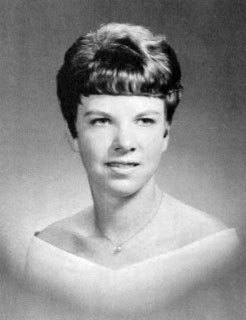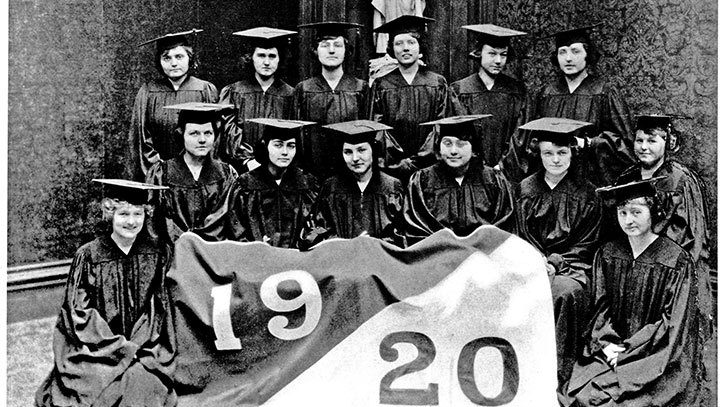1966-75 • Thriving by Adapting
The time had come for sweeping change.
Expanded educational and professional opportunities for women, open enrollment at the City University of New York (CUNY) system and a lack of state support had greatly impacted the College and its continued viability.
So, in 1969, shortly after S. George Aquin O’Connor became the College’s fifth president, a charter amendment was made to change the school’s name from St. Joseph’s College for Women to simply St. Joseph’s College – and men were allowed to enroll. Three years later, the College undertook its first large-scale expansion, launching an upper-level extension program at the Sisters of St. Joseph’s motherhouse in Brentwood in 1971.
Those decisions paid off as enrollment bounced back, climbing in 1975 past 1,000 for the first time in the College’s history.
To further stay competitive, St. Joseph’s expanded the Department of Child Study. The College’s laboratory preschool was officially designated the Dillon Child Study Center.
 S. Mary Ross ’69
S. Mary Ross ’69
First Religious in the state to serve as commissioner of parole
Felons up for parole prepare for their hearings with fingers crossed, wishing and praying a forgiving soul sits on their release board. Seated upright in the hearing room, the compassionate figure of Parole Commissioner S. Mary Ross was all
they could hope for.
After she was appointed to the New York State Board of Parole in 2008, the 1969 graduate of St. Joseph’s College interviewed more than 3,200 men and women up for parole, playing an important role in determining whether they would be released from prison.
“Being a judge does not fall easily within the charism of the Sisters of St. Joseph — unless you think of a judge as a decision maker,” S. Mary said of her time on the parole board. “As decision makers, we Sisters of St. Joseph have been meeting needs where we found them since our inception. And the way we provide service to the community is based on the decisions we make.”
For S. Mary, fostering positive change has always been the touchstone of her work. An administrative law judge and the first Religious in the history of New York to serve as commissioner of parole, S. Mary devotes her life to restoring lives lost to crime.
After graduating from SJC Brooklyn with a degree in child study, S. Mary entered the Sisters of St. Joseph in 1970 and spent 13 years in traditional convents. In 1983, she joined Providence House in Queens — a nonprofit helping women who are homeless and recently released from prison back into society — first as program director (1984-1990) and then executive director (1990-1995).
From there, S. Mary became the Queens Legal Aid Society staff attorney for the criminal defense division.
– VALERIE ESPOSITO and DAVID HENNE


